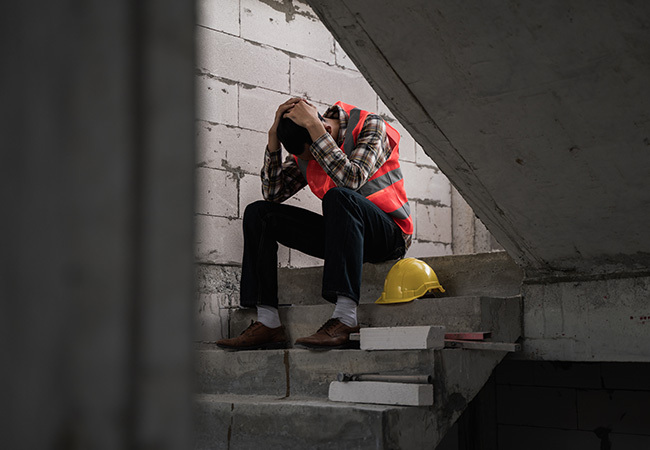Michigan BOP Insurance: What To Know
If you own a small business in Michigan—like a bakery in Detroit or a repair shop in Grand Rapids—you probably face a mix of risks. Fires, lawsuits, or even a broken piece of equipment can throw off your entire operation. That’s why many business owners choose a Michigan BOP insurance policy.
A Business Owners Policy in Michigan isn’t required by law. But it’s one of the easiest and most affordable ways to protect your business from common problems.
Who Needs This Coverage in Michigan?
Michigan law requires certain insurance depending on your type of business. A BOP isn’t one of them, but other coverages are:
Workers’ Compensation is required for businesses with:
- Three or more employees at one time (including part-time employees), OR
- One or more employees working 35 hours or more per week for 13 weeks or longer during the preceding 52 weeks
Commercial Auto Insurance is required if you use work vehicles. Minimum limits include:
- Commercial Auto Insurance minimum limits are $50,000 per person / $100,000 per accident for bodily injury
- $25,000 for property damage.
- Michigan requires $1 million in Property Protection Insurance (PPI) for damage within Michigan and $10,000 for out-of-state property damage
Property Protection Insurance (PPI) is unique to Michigan and covers damage your commercial vehicle causes to stationary property within the state, such as buildings, fences, and parked cars. This does not cover damage to moving vehicles or property damage that occurs outside of Michigan.
Contractors must comply with local bonding requirements. Some Michigan counties require contractor license bonds, typically ranging from $1,000 to $25,000, depending on the jurisdiction and project size.
Daycare Centers must have general liability insurance.
Businesses that serve alcohol must carry liquor liability coverage with minimum limits of $50,000 per occurrence for bodily injury or property damage and $100,000 per occurrence for death, as required by the Michigan Liquor Control Code. Proof must be submitted to the Michigan Liquor Control Commission using form LC-95.
Even when insurance isn’t required, going without it can be risky. If a contractor accidentally damages a customer’s home, they may have to pay thousands out of pocket without general liability insurance. Learn more about affordable local insurance solutions for small businesses to keep costs down while staying protected.
What a BOP Covers
A Michigan BOP insurance policy combines several important protections into one bundle:
General Liability Insurance: Covers claims if someone gets hurt or their property is damaged at your business. Example: A customer slips in your store and sues.
Commercial Property Insurance: Pays for repairs or replacements if your building or equipment is damaged by fire, theft, or storms.
Business Interruption Insurance: Helps you recover lost income if a covered event, like a fire or flood, shuts your business down.
You can also add coverage to fit your business needs, such as:
Cyber Liability Insurance: Protects you if customer data is stolen or breached. This is especially important for businesses handling sensitive customer information.
Equipment Breakdown: Pays for repairs to important machines like HVAC or kitchen equipment.
Commercial Auto Add-On: Helps meet Michigan’s strict auto coverage rules for business vehicles.
Risks and Common Claims in Michigan
Even small businesses face significant financial risks in Michigan. Common claims that fall under a Business Owners Policy in Michigan include:
Winter Storms and Tornadoes: These are common in places like Flint or Kalamazoo. Storm damage can result in substantial repair costs and business interruption losses.
Slip-and-Fall Accidents: These happen often during icy weather. Injury claims can lead to significant medical expenses and legal costs.
Theft and Vandalism: These are more likely in cities. Losses can include stolen inventory, damaged property, and security system repairs.
Product Liability: If you make or sell faulty products, you could be sued. These lawsuits can result in costly settlements and legal defense expenses.
A snowstorm in Lansing could cause significant roof damage requiring extensive repairs.
Even businesses that don’t seem risky can get hit with substantial claims. That’s why having strong coverage matters.
Other cost factors include:
Older Buildings: You’ll pay more if your building has old wiring or plumbing.
Location: Businesses in northern Michigan often pay less in crime-related costs but more in snow damage.
Risky Industries: Bars and restaurants that serve alcohol usually pay higher premiums.
Claims History: A clean record can save you around 20%.
Your rate reflects your risk—so the safer and more prepared you are, the better your price.
How the Claims Process Works in Michigan
If something goes wrong, you’ll want to act fast and follow Michigan insurance regulations. Here’s how the claims process works:
- Report the Claim Fast: Try to report losses within 24–48 hours.
- Gather Proof: This could include police reports, photos, receipts, or statements from witnesses.
- Investigation and Payment Period: Michigan law requires insurance companies to acknowledge property insurance claims and respond to communications within 30 days of receiving notice.
Once all necessary information is provided, insurers generally have 60 days to pay the claim. If payment isn’t made within this timeframe, the claim is considered overdue and interest may be owed.
- Dispute Help: If the insurance company delays or denies payment unfairly, you can contact the Michigan DIFS (Department of Insurance and Financial Services).
Legal Oversight: DIFS makes sure all insurance companies and agents follow the rules and treat businesses fairly.
Penalties for Breaking the Rules: Not having required insurance—like workers’ compensation—can lead to fines of $1,000 per day, imprisonment for 30 days to 6 months, or both.
Bottom Line: What to Do Next
Michigan BOP insurance isn’t just a safety net—it’s a smart move. It protects your business from everyday risks and helps you meet vendor or lease requirements.
Call (855) 718-7552 to speak with a licensed expert.
Don’t wait for a storm, lawsuit, or accident to hurt your business. Get protected now—and stay focused on growing your company.





